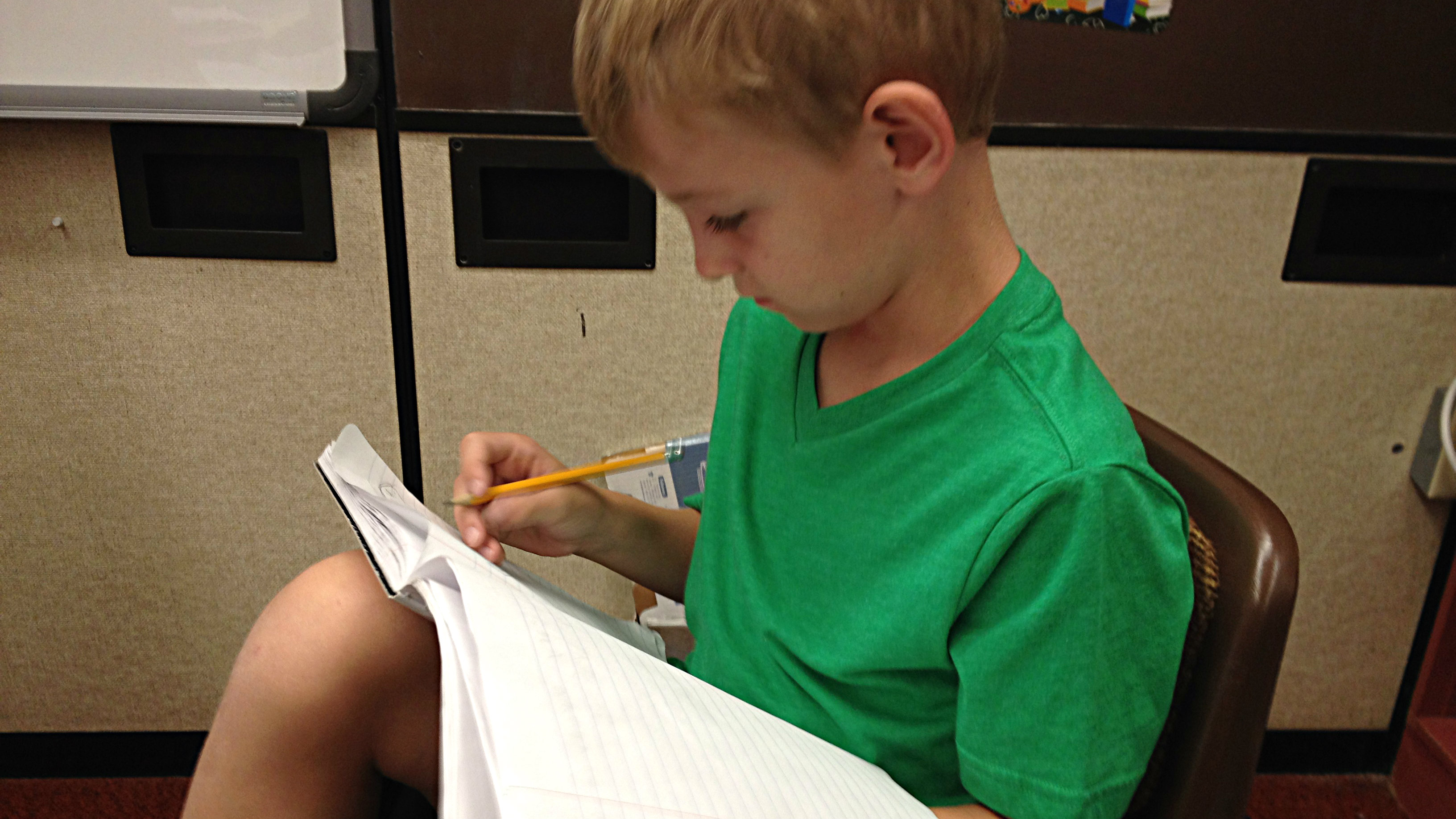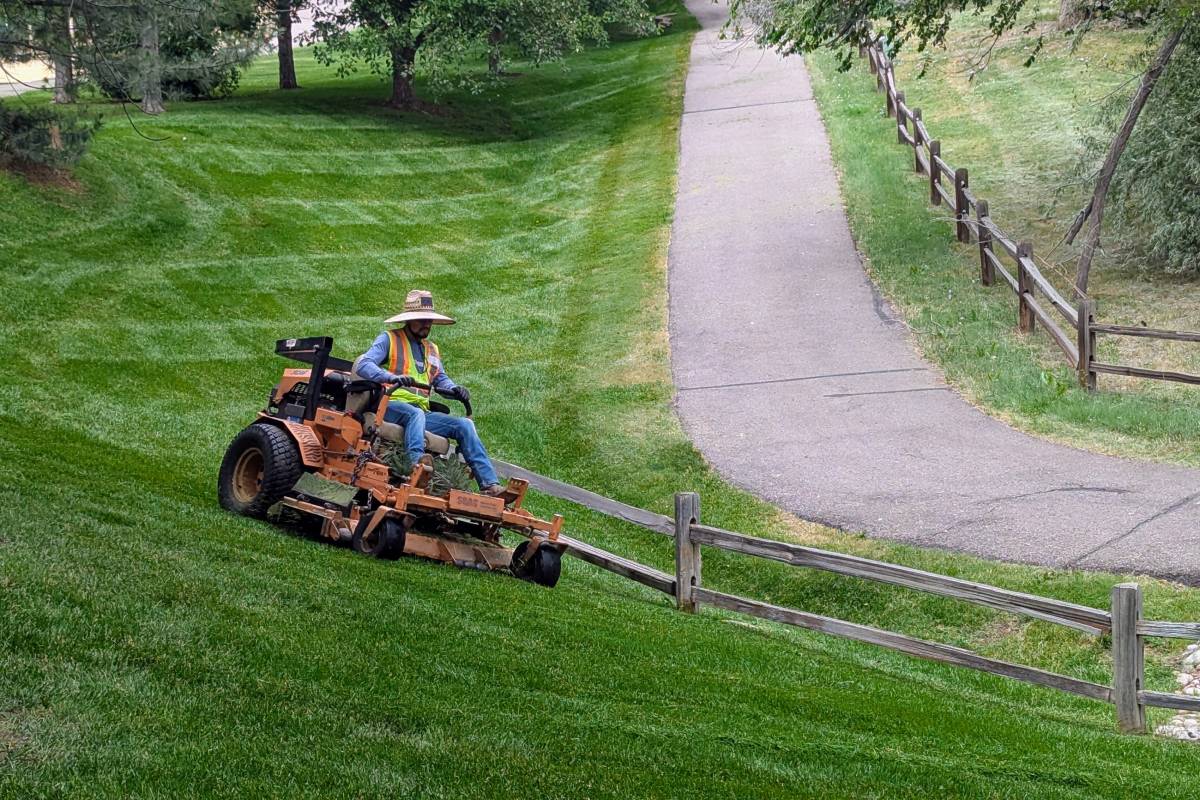 For many kids, especially low-income kids, hanging out with friends and enjoying the lazy days of summer can actually be harmful -- at least to their academic achievement.
For many kids, especially low-income kids, hanging out with friends and enjoying the lazy days of summer can actually be harmful -- at least to their academic achievement.
Without access to the fancy summer camps and educational outings their more affluent peers enjoy, those kids can lose months of progress in reading and math.
Teachers even have a name for this phenomena; they call it the Summer Slide.
For students who fall behind, that slide just gets steeper as the years go by. The cumulative effect plays a big role in widening the achievement gap between low- and upper- income students.
Swanson Elementary Principal Carla Endsley says every fall, her teachers notice students don’t have skills they had three months prior, like phonics and basic reading skills.
 “Those just come through repetition and memorization,” Endsley says. “You just have to learn them. If you’re not continually practicing that and solidifying that, then you’ll lose it.”
“Those just come through repetition and memorization,” Endsley says. “You just have to learn them. If you’re not continually practicing that and solidifying that, then you’ll lose it.”
Jefferson County’s Summer of Early Literacy Program aims to stop the slide. The pilot program, which involves 6oo students at six schools, is testing out whether it’s possible to prevent summertime literacy loss among low-income students.
Swanson Elementary in Arvada is one of those schools.
For three hours each day, over the course of six weeks each summer, students like 7-year-old Fisher Britton-Crossman attend small classes of no more than 15 students, and get high-quality practice in reading and writing. After lagging behind his classmates last year, Fisher was one of the kids invited to attend the summer school.

“I’ve got frustrated reading in second grade when we had to read ‘new-leveled’ books,” Fisher says.
Fisher is going into third grade, which is the 'make-or-break' year for reading. If struggling low-income students aren’t on target by third grade, they are eight times more likely to drop out than their peers who are.
“If you can get them ready and at level they have the skill sets to pretty much make it through the other grade levels and pretty much make it through high school,” says Denise Delgado with the Jefferson Schools Foundation, one of the program’s private funders. Mile High United Way and the Corporation for National and Community Service are other sponsors.
Fisher's situation illustrates what the summer school is up against. He likes to read books on Pokeman, armies and Legos, what he calls non-fiction. The trouble is, he doesn’t get much of it.
 “At my mom’s house I only have one non-fiction book,” he says. “So whenever I get a non-fiction book from the school from the library I take it home and I read it.”
“At my mom’s house I only have one non-fiction book,” he says. “So whenever I get a non-fiction book from the school from the library I take it home and I read it.”
The Summer of Early Literacy program keeps Swanson's library open on Wednesdays in the summer so anyone in the neighborhood can check out books. The school also provides free meals every day.
Principal Endsley says there are other benefits to the program. Teachers, many of whom work at the school during the regular year, get literacy training. And she gets to know parents better because many come in for breakfast and lunch with their children.
 A University of Colorado study shows that participants in this summer school were nearly eight times more likely than students not in the program to score at grade level on state tests. Research shows that it takes about 300 extra hours of literacy instruction for low-income students to catch up in reading and writing. Through JSEL, Jeffco's most at-risk readers will get 360 hours of extra time before they reach third grade.
A University of Colorado study shows that participants in this summer school were nearly eight times more likely than students not in the program to score at grade level on state tests. Research shows that it takes about 300 extra hours of literacy instruction for low-income students to catch up in reading and writing. Through JSEL, Jeffco's most at-risk readers will get 360 hours of extra time before they reach third grade.
It's not just reading skills the program aims to improve; when a child struggles to read, it affects their entire self perception.
“I feel like I’m the slowest reader,” says Madison Marano. a tiny, serious girl with strawberry blond hair. She’s made great strides this year, and proudly reads one of the favorite things she’s written:
“Alone I am a drop of water and when others help I’m like an ocean.” she reads. “When every single person helps I’m like a boat floating so I don’t drowned or sink in my boat so I can stay happy.”
 Confidence building is one side effect of the program’s smaller classes. Summer school also comes with less pressure and no tests, and the chance for teachers to give individual attention to students, like incoming sixth grader Stevie Keen.
Confidence building is one side effect of the program’s smaller classes. Summer school also comes with less pressure and no tests, and the chance for teachers to give individual attention to students, like incoming sixth grader Stevie Keen.
Teacher Revea Spivey says she’s able to give individual attention to students like Stevie that wasn't available during the regular school year.
“After teaching Stevie in fifth grade one thing I noticed with her coming back to summer school, with having smaller groups, I was able to pinpoint lots of specific things in her writing for her to work on,” she says. “Typically she wasn’t completely writing assignments last year. She was able to complete several writing assignments this summer just being able to have that focused time. I also noticed that all of the mini lessons I was teaching, she was putting them straight into her writing.”
 The two worked on transition words and details. Stevie has noticed a difference.
The two worked on transition words and details. Stevie has noticed a difference.
“Most writing mostly tells the reader but I wanted to make it alive,” she stresses.
Ultimately, program leaders would like to develop a scalable, replicable program to help schools and school districts close literacy achievement gaps throughout the district.









